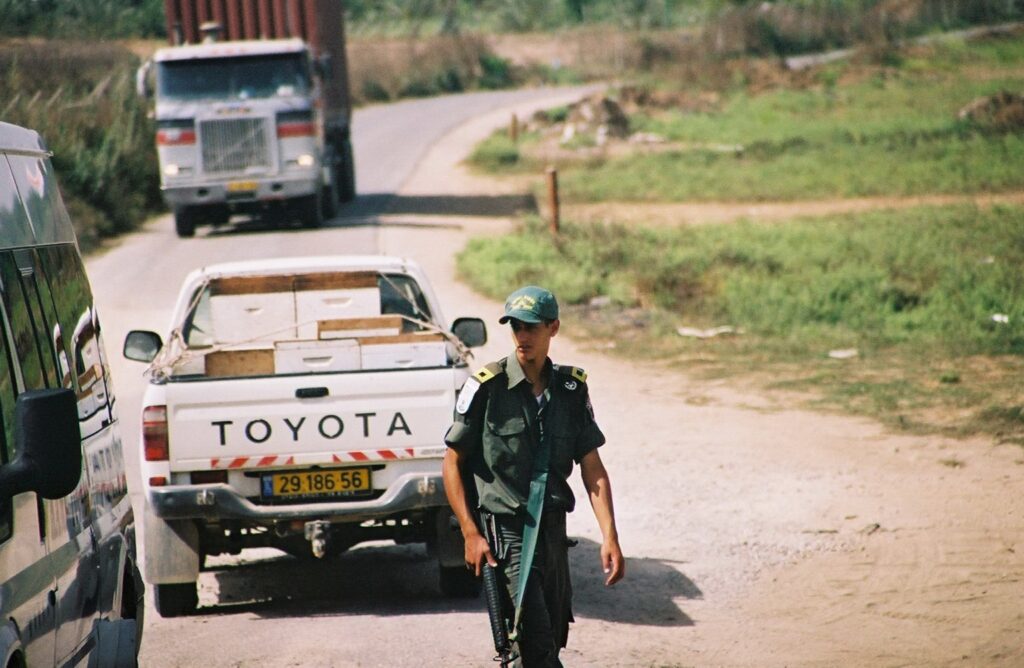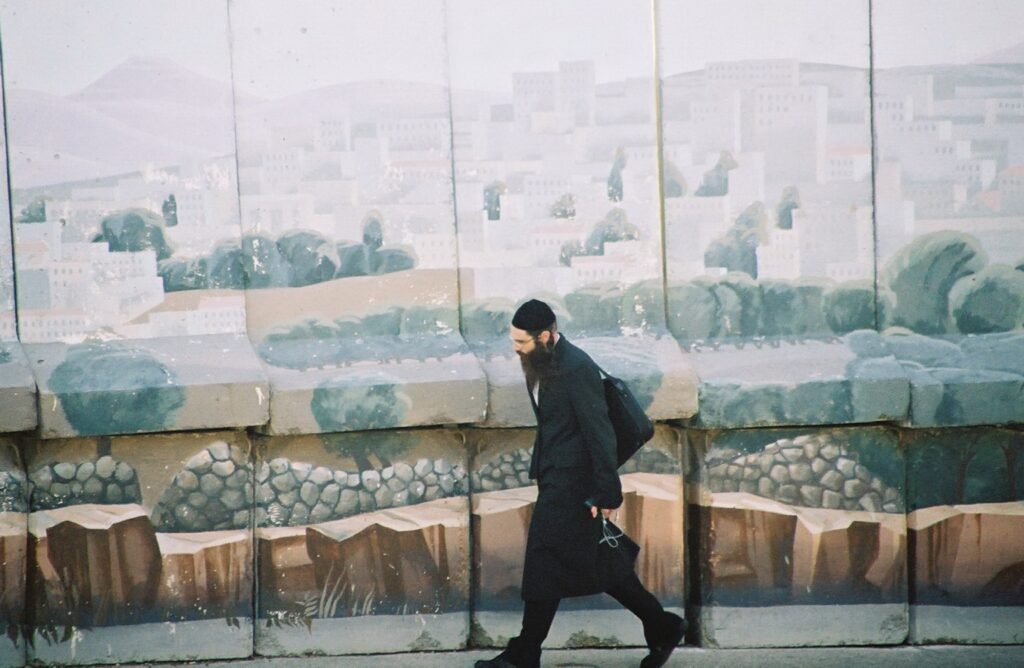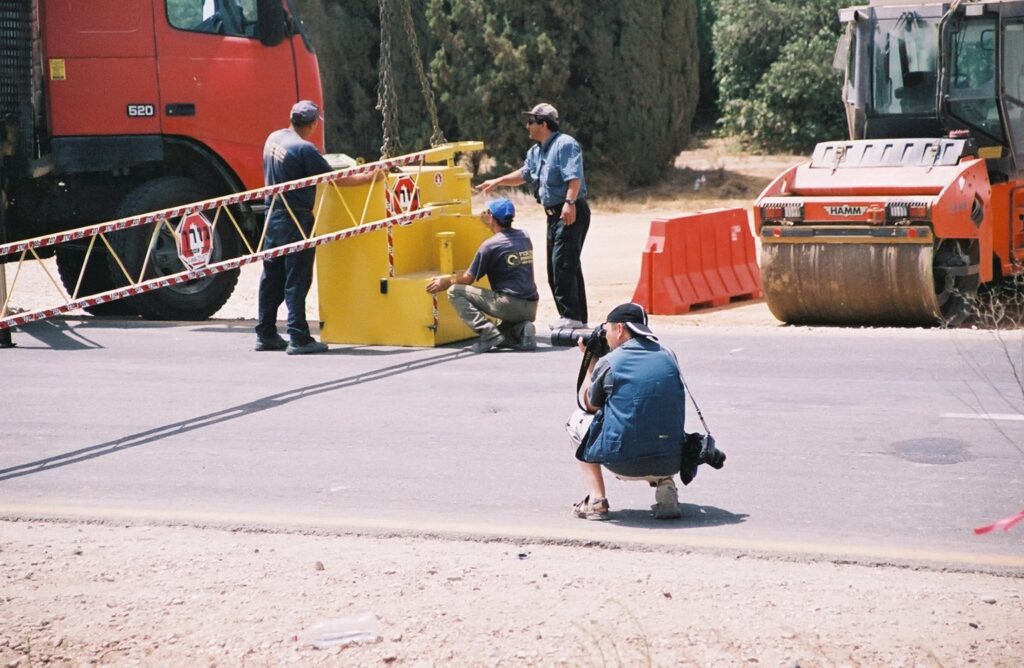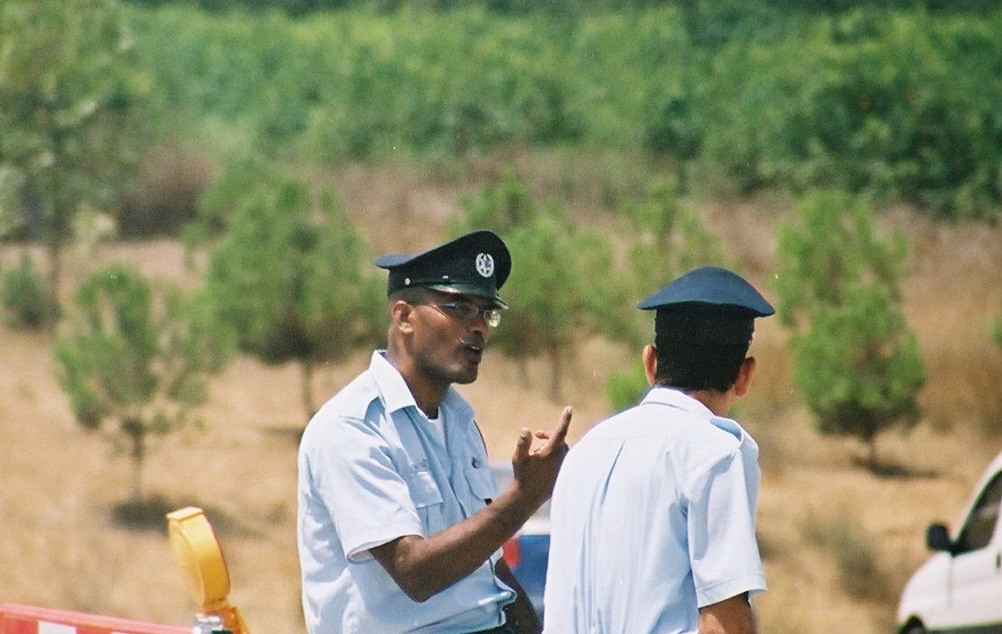

Mark Milke, Western Standard, October 14, 2023
In the wake of pro-Hamas celebrations across Canada after that terrorist group’s attack on Israel—this where mothers, grandmothers, and children were kidnapped and where Rave festival partygoers were raped and at least 260 massacred, and where 40 babies were murdered—it is now necessary to point out what should be obvious: citizens in one liberal democratic country (Canada) should side with citizens in another (Israel) when attacked by terrorists. This is a moral, civic, and civilizational duty including when one’s origins are Palestinian.
Before detailing the case for Israel, let’s put Gaza, Israel and attempts to live a peaceful life in the region in some context.
Gaza and Israel
I was on the border of Gaza in July 2005 as Israelis began to withdraw from the scattered settlements in Gaza, a withdrawal they would complete in August. I was there as a freelance columnist along with journalists on a one-week information tour. We would visit and interview Israelis and Palestinians in every corner of Israel and the territories, including the border with Lebanon, Ramallah on the West Bank, Jerusalem, Tel Aviv, Haifa, and—we hoped—Gaza.
The Israeli Defence Forces (IDF) planned to escort us in but the IDF higher-ups never signed off. Instead, later that day, we visited a small Israeli town just north of the Gaza-Israel border, Netiv HaAsara, to talk with one middle-aged Israeli mother about her life.
As part of our hastily-arranged visit to that Israeli village of 900 people, just 200 meters away from Gaza, I stood on a sand dune taking pictures of moving vans across the border inside Gaza, in one of the settlements Israelis were vacating.
It was surreal: With terra cotta roofs, palm trees, and shimmering blue water in the distance, one could think you were viewing a southern California neighbourhood. Instead, I was taking snapshots of streets in Gaza with Gaza City and the shimmering Mediterranean Sea mere kilometres away.
We left midafternoon and returned to Jerusalem. The next morning over breakfast, one of our entourage opened up the Jerusalem Post to read of how that same village was hit by a Gaza rocket several hours after we’d left. A 22-year-old Israeli-Brazilian woman was killed with her boyfriend injured, this after the rocket pierced her home. A Thai guest worker in Netiv HaAsara was also killed.

Point One: Israel has no natural borders against terror
That’s one reality anyone who has been in Israel grasps: The tiny distances that separate Israeli villages, towns and cities from selected Palestinians in Gaza and the West Bank who seek to wipe Israel off the map. Note the “selected” caveat. I do not assume all Palestinians support Hamas, Hezbollah, and terrorism, nor that all prefer war over peace with Israel.
The Israeli village I visited in 2005 is less than 100 kilometres from Jerusalem, 70 kilometres from Tel Aviv, a mere 4.3 kilometres from Gaza City and just 200 metres from the Gaza border. To put that in Canadian terms,
That’s how close Israelis are to the mayhem unleashed upon them by Hamas.
Point Two: Israel has chosen peace where it could

The response from some in Canada that Israel is a colonizing, warmongering state and that both “sides” in the Israel-Palestinian conflict are somehow equal in blame is ghastly wrong.
Some mistakenly claim that Israel could have had peace with those in Gaza if only Israelis abandoned the outside-in military control over Gaza that remained in place after 2005 after the evacuation of Israeli settlements. But that would have been a suicidal policy, with even more weapons, bombs, and rockets proliferating in Gaza, this in the absence of trusted Palestinian leaders who could keep and enforce the peace on their own side.
To wit, doves of peace might have survived better in the last three decades had successive Palestinian leaders from Yasser Arafat (who signed the Oslo Peace accords in 1993 and then led the Palestinian Authority from Ramallah) and successive leaders guaranteed peace to Israel and meant it. But from Arafat’s double-speak and refusal to conclude a Bill Clinton-negotiated peace treaty with Israel in 2000, to the avowed aim of Hamas to exterminate Jewish Israelis, Israel has no such peace partner.
As proof and on the flipside, we know Israelis commit to peace including permanent territorial withdrawal when they find a partner they can work with. There have been multiple examples since the 1970s:
In addition, consider the history of existing unilateral Israeli actions. In 2005, as part of our media tour, we met Michael Oren, later the Israeli ambassador to the United States, but then head of a Jerusalem think tank. When I asked Oren why Israel was withdrawing its settlements from Gaza without security guarantees from Palestinian leaders, he opined that defending several thousand Jews in a sea of Palestinians was becoming politically, economically, and militarily untenable. It was the same reason Israel withdrew (completely) from south Lebanon five years previous.
Oren was realistic. He predicted Israel would be hit by terror attacks from Gaza even after disengagement, attacks already happening and which would intensify after the summer 2005 withdrawal. This was exactly accurate and became worse after Hamas overthrew the Palestinian Authority in 2007.
Even before Hamas assumed control, between 2005 and 2007, over 2,700 rockets were shot into Israel from Gaza. After 2007, with Hamas in control, the rockets attacks continued in every single year since. The weekend Hamas attack on Israel on the Jewish holiday of Simchat Torah numbered at least 2,200.
Reflexive critics should recall both Israel’s negotiated settlements with other former enemies and unilateral actions when attempting to hold Israel responsible for the lack of a permanent peace with Palestinians in Gaza and the West Bank. Blame is instead better directed at Hamas, Hezbollah, the late Yasser Arafat, and Iran, the proxy behind much of the trouble in recent decades. Iran was directly behind the latest attack according to the Wall Street Journal which has confirmed that Iran’s Islamic Revolutionary Guard Corps “signed off” on the Hamas attack in early October.

Point Three: Moral equivalency and neutral language are a mistake
Despite Israel’s successful peace agreements signed with former enemies, and despite the terror attacks and rockets rained on at Israel for decades, some Canadians still treat the Israeli actions and response as no better than what Hamas has done, two sides of supposedly same immoral coin. Or worse—some have cheered on Hamas.
A few now well-known examples:
Glavin had more moral clarity than a multitude of CUPE spokespeople and academics when he noted both the origins of Hamas and its actual equivalency: “Hamas was founded as the Palestinian wing of the Nazi-allied Egyptian Muslim Brotherhood” and how the rampage of modern brigades this weekend in “Israel’s southern towns this weekend resembles nothing so much as the handiwork of Hitler’s Einsatzgruppen murder squads during the Holocaust.”
Additionally problematic was how most media coverage refers to Hamas attackers as “militants”. This includes the BBC, most American networks, and the CBC, including one editor, George Achi who asked staff not to refer to anyone in the attacks as terrorists as “the notion of terrorism remains highly politicized.”
The term terrorist is indeed politicized but when even the Canadian government has designated Hamas as a terrorist entity since 2002, the CBC and other media should use the non-Orwellian words on offer: Terror, terrorist attacks, and terrorist.
Point Four: You can choose to side with laudable ideas and not your “tribe”
The history of the world is the history of tribalism. Most people side with their family, ethnicity, race sex, religion, nation or any other innumerable other ways to ways to divide off and segment.
But one can also choose to ally with people based on laudable ideas, with liberal democracy being a useful example. Most Canadians of German, Japanese and Italian ancestry did just that in the Second World War. They chose Canada and her allies over their own ancestral homelands, and this despite sometimes horrific treatment against them at the time, as in the unforgiveable internment of those of Japanese ancestry.
This need to align based on laudable ideas and superior values is why it was revolting to see celebrations for the Hamas attacks on Israel, with youth among them in Toronto and Montreal waving the Palestinian flag. Instead, Canadians of Palestinian origin and especially their leaders engaged in reflexive Hamas support should give it a re-think.
My ethnic background is German with relatives on the maternal side having emigrated from Prussia in the late 19th century. On the paternal side, my grandfather and grandmother came from German sections of Poland and Ukraine in the late 1920s.
But that ethnic history did not require sympathy with German Nazis in the 1930s and the Second World War any more than Palestinians and others need sympathize, excuse away, or defend Hamas or other attacks on Israel and Jews now.
In fact, even though my paternal grandfather had three brothers in the German army during the Second World War—either drafted or who enthusiastically signed up—my grandfather communicated only horror and contempt for Adolf Hitler and the Nazis whenever he spoke of the war to me as a kid. My uncles, aunts, and father had the same recollection. That’s because both my grandfather and grandmother recognized evil and never felt any need to be tribal based on their German identity. Morality mattered more.
Others have similarly chosen to ally with the right ideas and the people associated with them. When white Americans allied with black Americans during the 1960s civil rights era, they did so based on the belief that character and equality of opportunity mattered and not skin colour. Many Hong Kongers today prefer democracy, the rule of law, and freedom over the repressive policies imposed by Beijing, no matter that they and those ruling in China share a common culture. And one can sympathize with young women in Iran protesting against the repressive regime even if one is not Iranian, a Muslim, or a young woman.
This is known as shared humanity and it’s overdue for a restart among those now celebrating Hamas.
Point Five: It’s overdue to place responsibility on Palestinian leaders

Those who claim that the Palestinians in Gaza and elsewhere and in the West Bank had no control over their destiny given Israeli outside-in control over Gaza in particular miss the obvious: Many Palestinians are indeed victims but not primarily of Israel but of their own Palestinian leaders and Hamas.
The tragedy for Palestinians has long been the lack of a leader who faces down their own side when needed. When I was in Ramallah in July 2005 and interviewed Saeb Erakat, then the chief Palestinian Authority negotiator, I asked him why the PA refused to crack down on the radicals within their own movement.
Erakat’s response was that Palestinians would never fight other Palestinians, to which I responded “Why not?” noting that Americans fought each other to settle a civil war over slavery. As I recall, Erakat then simply repeated a version of the previous answer, perhaps because that was his actual position or because Erakat never had the authority for such a confrontation even if he desired it, while some such as the late Yasser Arafat once did but chose not to.
The cogent example of forcing peace agreements ahead and over the objections of one’s own side comes from onetime Sinn Fein (and suspected Provisional IRA) leader Gerry Adams. Adams and others negotiated the 1998 Good Friday Agreement with the United Kingdom and did so despite breakaway IRA factions that opposed the peace process.
Former Irish Times journalist Ed Moloney, in his 2002 book, A Secret History of the IRA, hints strongly that Adams or Martin McGuinness of the Provisional IRA, might have even tipped off British Intelligence on planned attacks by breakaway IRA cells, the one opposed to the peace talks, whenever Adams and McGuiness wanted to keep the talks alive. In short, the Good Friday Agreement eventually happened because Adams and his compatriots finally wanted a deal more than they wanted dead English and were willing to blunt the radicals on their own side to get there.
It’s the same choice Palestinian leaders have had vis-à-vis Israel since 1948 who but who keep choosing terror. Thus Palestinians including those in Gaza who desire peace face the same weakness anyone does when tyrants and murderers have all the power and most of the guns. That included anti-Nazis in Germany who tried to assassinate Hitler and failed, or Palestinians in the last 30 years who would have concluded a treaty with Israel but could not overcome Yasser Arafat’s duplicity, or the genocidal thugs in Hamas and Hezbollah.
In other words, it is helpful to remember that whatever Hamas sympathy exists in some Palestinian communities, and it obviously does, individuals are just that. One should thus have pity on the specific Gazans who would, if they could, overthrow the terrorists and tyrants but have little ability to do so. As scholar Daniel Pipes has pointed out, there is every indication that many Gazans despise Hamas but “they dare not rise up against their power-hungry oppressors, who enjoy support from Iran.” In fact, a July 2023 poll of Gazans showed that 62% of Gazans wanted Hamas to keep the ceasefire with Israel and 50% agreed with this statement: “Hamas should stop calling for Israel’s destruction, and instead accept a permanent two-state solution based on the 1967 borders.”
Back to Canada: At a minimum in a liberal democracy such as ours, one has the freedom to choose sides and Palestinians thus have a choice: One can support Israel over one’s religious or national comrades instead of dancing in the streets over the massacre of Jews by Hamas.
Hamas has been in charge of Gaza since 2007. Their leaders have thus had 16 years to stop sending rockets and terror into Israel. They and other Palestinian leaders in the Palestinian Authority have always had a choice to conclude an Sinn Fein/IRA-United Kingdom-style deal with Israel, and thus one day turn Gaza into Singapore, i.e., into a seaport city with unlimited potential for Gazans.
Instead, Hamas leaders always choose to be a murderous death cult. That’s the reason innocent Israelis and innocent Gazans are dying.
Mark Milke is the president of the Aristotle Foundation for Public Policy and editor of The 1867 Project: Why Canada Should Be Cherished—Not Cancelled.
Like our work? Think more Canadians should see the facts? Please consider making a donation to the Aristotle Foundation.
SUBSCRIBE TO OUR NEWSLETTER
